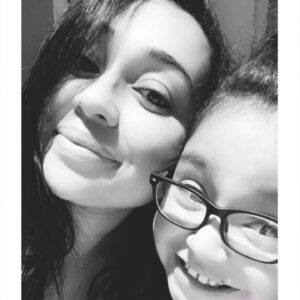
Invisible disabilities – sometimes referred to as hidden disabilities or non-visible disabilities – are not immediately apparent at first sight. Whether in the form of a mental, physical, or neurological condition or chronic illness, an invisible disability can limit or challenge a person’s movement or senses, impacting their daily lives. But because the challenge isn’t visible to those around them, those living with these challenges are prone to judgment, false conceptions, and misunderstandings by those around them. It also means they may not receive the same support and empathy as those who are visibly impaired.
As employers committed to cultivating diverse and inclusive workplaces, disabilities – whether visible or invisible – should be identified and discussed, so that everyone has the tools, support, considerations, and protections they need to perform and thrive. And as mobility professionals navigating our customers through life-changing transitions, talking about invisible disabilities is a critical first step to understanding how you can help them avoid or tackle barriers in their journey or in the host country.
We were grateful to sit down with our Movers International HHG Counselor, Tirza Mercado, who had the courage to share her experience with an invisible disability. As a counselor and as someone who has relocated her family in the past, Tirza offers unique insight into how other families living with an invisible disability can navigate the mobility journey safely and successfully.
Describe yourself, your family. How has having a child with an invisible and different ability affected your career and your family?

First and foremost, I am a daughter, a sister, a wife, and a proud mother of four children. My family consists of six members, each with a unique and important role. It is my honor to talk about a young lady named Hailey Rose, my oldest daughter of four. She is the sweetest, most caring, and courageous girl I’ve ever known. After 10 years of many evaluations and testing, my daughter was FINALLY diagnosed on September 8th, 2021, with Kabuki Syndrome.
Kabuki Syndrome was first discovered in Japan in 1967 by Dr. Norio Niikawa. It affects approximately 1 in 32,000 births and is caused by a mutation in one of two genes, KMT2D or KDM6A. This gene mutation was first discovered in 2010 at the University of Washington, the same year my daughter was born. Hailey has many underlying conditions, such as congenital heart disease, scoliosis, overpronation/flat feet, intellectual disability, developmental delays, hypotonia, immunodeficiency, short stature, and much more. Despite all those diagnoses, Kabuki kids have many more positive attributes and excellent memory in certain areas.
Sure, our family’s journey has been difficult, but not impossible. Raising a child with a rare disease has fundamentally changed every aspect of our day-to-day lives. Every day we adapt to her needs, whether medically, emotionally, physically, mentally, or educationally. Some days can be very exhausting, but I continuously fight for her rights and for our family’s needs in this contradicting world. These past 13 years have taught me how to become an eloquent advocate, not only for her but for myself, especially in the career setting. I cannot afford to settle for less, as she deserves nothing but the best.
Hailey has a normal relationship with her siblings, frequently transitioning between showing affection and needing her space from them. At a young age, her siblings were taught about Hailey’s invisible ability. They are very caring and protective of her and aren’t afraid of educating others. Greek philosopher Aristotle once said, “Family is the first school of social life.” I couldn’t agree more. My hope is that they grow to be advocates and allies; not just for Hailey, but for all those struggling with invisible disabilities.
What were your concerns about accepting a relocation for you personally, and your family?
We knew that any big change wouldn’t be easy for our family, so we made sure to take time to weigh the pros and cons of relocating and consider whether our company was providing adequate benefits to ensure a positive experience for our family. Other questions and concerns included:
- What lifestyle does the new location provide or lack?
- Is it the right choice to move the kids from a small town to a big city?
- Will this move be daunting for my kids?
- Are there enough programs for Hailey?
- Which type of school would be best for Hailey (Public, Charter, or Private)?
- Will our income be enough to pay out-of-pocket medical expenses such as copayments, deductibles, and medication?
What ultimately factored into your decision-making process to make the move?
The main factor for our relocation was Hailey’s education and medical needs. The small city we lived in was failing her; they were holding her back from what we knew she could achieve in a bigger city. My husband requested a transfer from Virginia to Texas at the end of 2019, then COVID brought everything to a standstill. In September 2022, my husband received a consideration letter for his transfer, after which I put into motion our relocation process.
I started to mentally prepare the children for the possibility of relocating. With Hailey’s neurological disorder, it’s important to assure her of what’s to come. Her safety and well-being were my priority.
The first week of October, we received the final letter from my husband’s employer stating his report date…the same week as my start date from Weichert/Mover’s International! Can you imagine my anxiety!? I only had two weeks to get everything aligned: doctors, schools, daycare, transportation, relator, housing, packing, and moving. Caregivers, be prepared for the fallout of moving, which may include meltdowns and stimming behaviors. But at the end of the day, it’s all worth it, knowing it’s all for the best; a new life chapter.
I can truly say that working for Weichert/Movers International has been game-changing. My role has given me flexibility and a true work-life balance. Not only am I able to provide for my family, but I am able to pursue additional training, hobbies, care for my family and, most importantly, advocate for my daughter.
And much to my delight, the move has not negatively impacted Hailey. She is extremely happy and is finally receiving one on one support in school and passing with flying colors.
Besides schools, what other resources were you most concerned about when making the decision to move?
I was most anxious about securing health insurance, and services such as therapy: speech, occupational, physical, life skill programs, waiver programs, the quality of the hospitals, and medical staff.
What advice do you have for colleagues who may (themselves and/or family member) have an invisible special need or different ability?
I am grateful to have a platform to share some of the best practices that I have developed based on my own experiences relocating with my family and advocating for Hailey. Prior to relocating, I urge you to do the following:
- Contact the local Department of Special Disability and Education at the destination location to learn about their policies, procedures, and laws.
- Housing: Is the house well equipped with accommodations? Compare the cost of living of surrounding neighborhoods.
- Education: Do your research online, and plan a trip to visit prior to moving. If you cannot go in person, schedule a virtual meeting and tour with your child’s school. Discuss the major goals you expect and ask them challenging questions about their special education programming/curriculum. Ensure they are willing to be adaptable to your child’s needs or can connect you to the appropriate supports.
- Ask teachers, therapists, and other professionals working with you or your child to write letters of their experiences with you/your child to make the transition less stressful upon arrival.
- Medical: Get yourself/your child seen by a primary doctor/specialist prior to moving. Make sure to be up to date on all shots and exams. Request medical records in advance. Refill any prescriptions in advance and request a month’s supply.
- Google: Read reviews and be on the lookout for providers (i.e., physicians, pharmacists, therapists) who are insensitive to disabilities, or who specialize in your condition. Call potential doctors and set up meet n’ greet appointments.
- Reach out to individuals who are going through a similar experience, a therapist, or someone you feel safe speaking to. Your employer can also help connect you with a past assignee who can share their own experience and help you manage expectations
Remember, you are not in this alone. Taking care of yourself during this time is critical; after all, you cannot pour from an empty cup.
Lean in!
Tirza’s eager readiness to open up about her experiences with invisible disabilities — as a mother and relocating family — is a reminder that (most) people are open to sharing their stories…if we ask! As people supporting other people, we’re not always going to intuitively know what our relocating employees want or need to be successful. But being open to learning and asking questions about how we can support them best, is critical to building trust and ensuring great experiences.